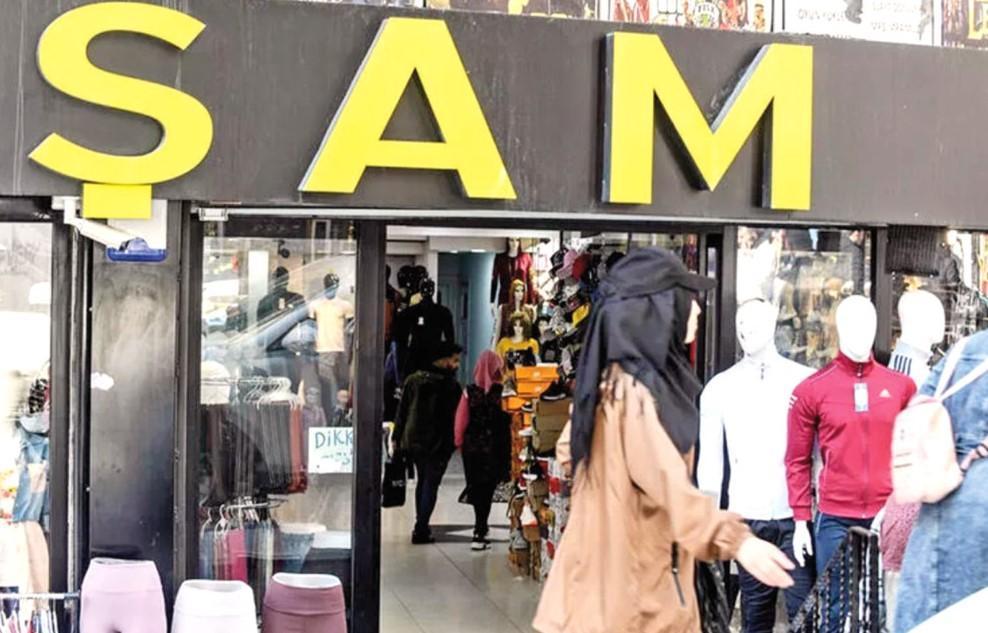
While the Turkish government is working on preparations to ensure safe and voluntary return of 1 million Syrians who are under temporary protection in Turkey, an expert has warned the prevailing problems regarding security, the judiciary and the education system could make the process difficult.
“A majority of the Syrians would prefer to return to Syria. But there’s a point that should be considered. They don’t want to be dissappointed again instead of being given a refugee status,” said Mazen Kseibi, a trustees board member of the Syrian Association for Citizens’ Dignity.
“If we are talking about a voluntary return, nobody would oppose that. However, the situation in Syria is very messy. If better conditions are provided for returnees, of course, that would create a very good opportunity,” he told daily Hürriyet.
“Because, Syria will not be rebuilt by foreigners. Syria needs Syrians,” he added.
More than 3.7 million Syrians live in Turkish cities under a temporary protection scheme, according to the Interior Ministry. “About 122,000 of this number have been passive registrations for two years. In other words, there is no sign that they are in Turkey,” Deputy Interior Minister İsmail Çataklı said on May 8.
Slightly more than 200,000 Syrians have been granted Turkish citizenship since the civil war erupted in Syria in 2011.
Abdulmühim Sallah, 32, a father of two, said they fled Syria because their house in the countryside of the capital Damascus was demolished during the civil war and that he had received a new conscription call although he had completed the compulsory military service.
“I know that we’re foreigners here. But we cannot return to Syria at the moment,” he said during an interview at a watch shop in Istanbul’s Esenyurt district.
“My kids and I only hold residence permit cards, we are not citizens [in Turkey]. When the war is over and the circumstances are favorable in Syria, we will return,” he said.
Muhammed Hilall, 25, has been running a clothing shop in a shopping arcade full of Syrian traders in Esenyurt.
“The infrastructure in Aleppo has been destroyed by the war. There’s no school or job opportunity in Aleppo. How can we survive if we return there? Syria is our homeland. Our relatives live there. We miss our country and relatives. Our elderly people don’t speak Turkish. Because of these reasons, we would like to return, but problems in Syria should be resolved first,” he said.
Bassel Marsallah, a 34-year-old textile workshop owner in Esenyurt, was wounded during clashes in Aleppo nine years ago.
“I arrived in Turkey for medical treatment. I’ve gone through two operations, and I’m still under a treatment. I want to return to Syria one day and reopen my workshop in Aleppo. But conditions are not suitable now,” he said.
One of his three children was born in Turkey, and they all speak Turkish, he noted. “I’ve established a business here. Thus, I don’t want to leave from here now.”
Fatih, the district that includes the old city of Istanbul, hosts one of the largest Syrian communities in the metropolis. Many of them are running restaurants, barber shops and other businesses to serve both locals and foreigners from other nationalities.
High-school student Meryem, 18, has been living in Istanbul for more than three years and speaks Turkish fluently.
“We love Turkey. When it’s about migrants, people usually focus on trouble-makers. However, there many good and successful ones,” she said.
Majid, 25, who declines to give his surname, fled five years ago from Damascus, where he was studying at a medical faculty.
After working at a slipper factory for 15 hours a day, now he is running a silver goods shop in Fatih. “I’ve never received benefits, I’ve always been a laborer,” he said, adding that he wants to study at the university and return to his country when the war is over.